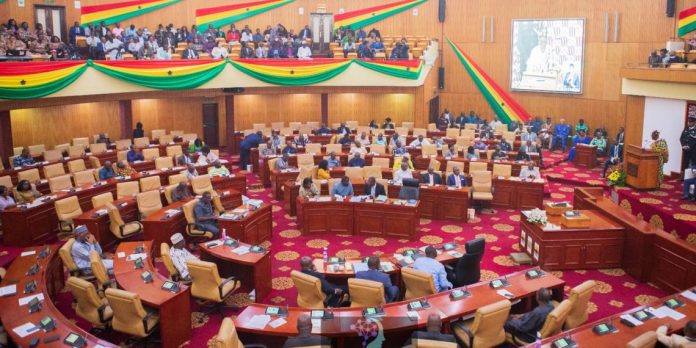In a typical meeting of parliamentarians of the Parliament of Ghana, there are several procedures that take place.
One of the initial steps is the roll call, where the names of the members are called out to establish their presence. This helps to ensure that quorum, the minimum number of members required for the meeting to proceed, is met. After the roll call, the meeting officially begins with the Speaker presiding over the proceedings.
During the meeting, members have the opportunity to present and debate on various issues, propose motions, and ask questions. The Speaker maintains order and ensures that the meeting follows parliamentary rules and procedures. At the end of the meeting, there may be a voting process to make decisions on the matters discussed.
The Parliament of Ghana showcases the democratic system in action, where elected representatives debate and make decisions on behalf of the people. Also, it highlights the diversity of voices and perspectives within the country, as members from different political parties express their views.
Lastly, it demonstrates the importance of dialogue and compromise in reaching consensus on various issues affecting the nation.
In relation to journalism, the Parliament of Ghana’s meetings promote transparency, access to information and diversity in perspectives. These allow journalists to hold elected officials accountable in governance, provide accurate and comprehensive coverage of legislative matters and ensure balance and inclusiveness.
On the other hand, there are some negatives associated with the Parliament of Ghana. These include partisanship, lack of engagement and communication challenges. Journalists could get caught up in partisan narratives leading to the provision of biased and subjective reports.
In addition, lack of engagement by members in terms of participation or attendance can result in less substantial content to cover. Conclusively, the use of parliamentary jargon and complex legislative processes make it difficult for some journalists to effectively communicate matters to the public. This challenge makes information less accessible and engaging.
Overall, the Parliament of Ghana serves as a platform for democratic governance and the representation of the people’s interests. It faces various challenges, including the lack of engagement from some members and communication difficulties in translating complex legislative matters to the public.
However, journalists play a crucial role in bridging these gaps by simplifying and explaining parliamentary proceedings in a way that is accessible and engaging for everyone.
Their efforts help ensure that the public stays informed and connected to the democratic processes of the country. It’s a continuous journey of improvement and finding innovative ways to make parliamentary affairs more transparent and understandable to all.
By: Dowreena Borley Boyefio – Intern


